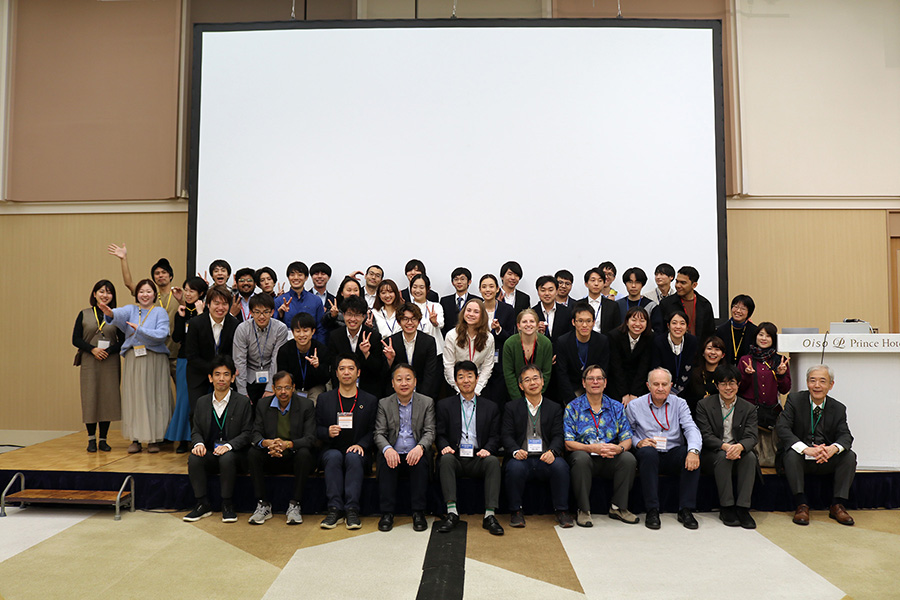AY2024 Intelligent Services: A Social Perspective workshop
The Academy for Convergence of Materials and Informatics (TAC-MI) held a two-day event entitled “Intelligent Services: A Social Perspective” on December 19 and 20, 2024 to brainstorm new social services for the future. This workshop was held in person at Oiso Prince Hotel, the same venue that hosted the TAC-MI International Forum from December 16 to 18. During this workshop, held annually, students aim to develop a broad perspective and boost their leadership skills by considering solutions to issues in future society. TAC-MI students and overseas students form groups, identify issues in future society, and discuss and propose solutions to these issues while applying knowledge and experience from their own research fields.
Workshop theme “Future Materials and Future Society: Materials to Live in Extreme Environments”
This year’s event focused on “Future Materials and Future Society: Materials to Live in Extreme Environments”. In the workshop, twenty three doctoral students from TAC-MI and seven overseas students formed six groups and thought about “Extreme environments” where normal life and activities are severely restricted by natural conditions beyond human control, such as deep ocean, space, underground etc. or “Extreme situations” where the access to resources or infrastructure is extremely restricted by human activity, such as starvation, war, virus pandemic etc., imagined extreme world that is different from our daily life to think future materials for our future society.
Excursion
On the afternoon of December 18, the day before the workshop, an excursion was held to deepen bonds between group members in preparation for the workshop. Participating students, who were divided into six groups, toured the Odawara Castle and Great Buddha of Kamakura.
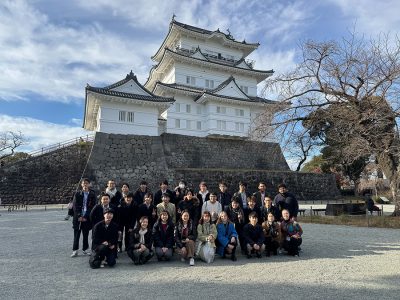
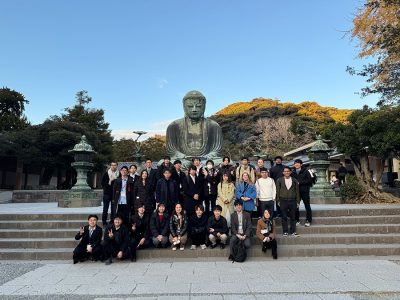
Special lectures to deepen understanding of the theme
The first day began with an explanation of the workshop objectives to the participants. At the beginning of the group work, we invited researchers to give special lectures on specific initiatives in order to deepen our understanding of this theme.
In the first special lecture, Manabu Fujii, Associate Professor of Science Tokyo, gave a special lecture titled ” Water environmental contamination and treatment technology ” on the development of water treatment technology for the realization of sustainable water use in developed and developing countries. The second special lecture was given by Makoto Sakurai, Manager for ECLSS of JAXA, on “Chemical Engineering for Living in Space! -Environmental Control and Life Support System (ECLSS) and Material Circulation-“, he introduced ECLSS, an environmental control and life support system that maintains an environment in which humans can survive, such as oxygen production, carbon dioxide removal, and air regeneration on the International Space Station (ISS).
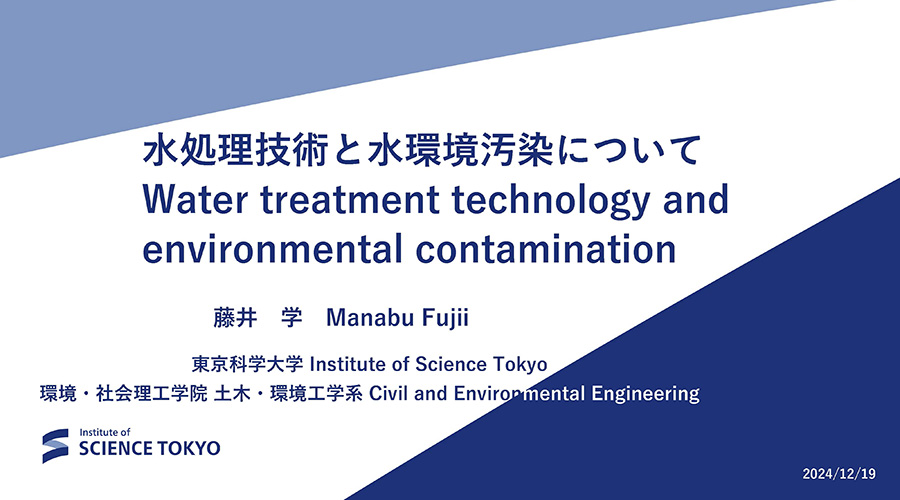
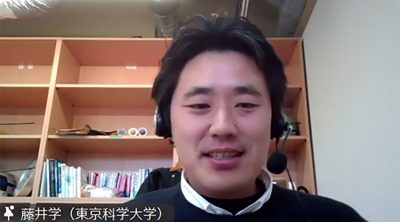
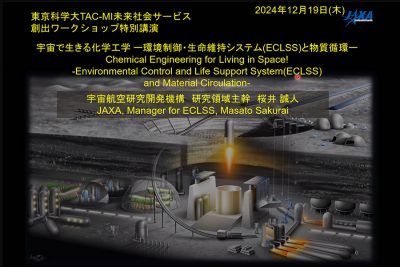
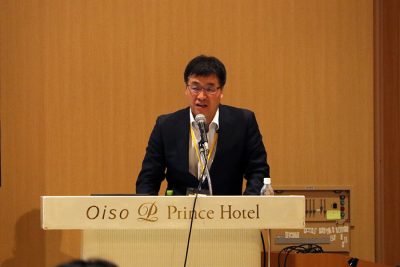
Finding topics, then zooming in on particular ones
After the lecture, the participants were divided into six groups and discussed solutions to solve problems that arise under the extreme environments or situations, and future materials for living in extreme environments. Each group was also joined by a graphic facilitator to stimulate the discussions and create visual representations of the participants’ ideas. First, the students investigated extreme environment or situation, and wrote them down on worksheets. Then, they exchanged opinions on extreme environments or situations and selected the issues to be tackled as a team.
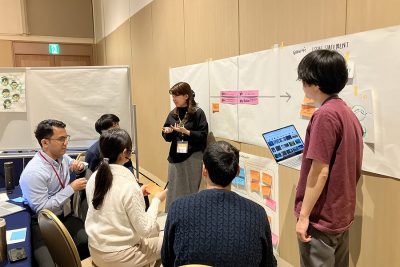
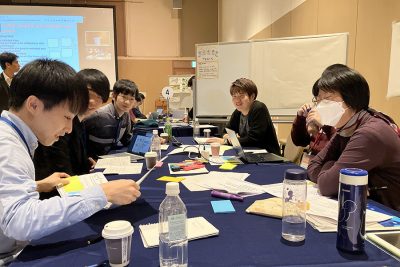
Envisioning the future in which the problem is solved and prototyping the solution
In the afternoon of the first day, students deepened their discussions about the environments and situations they had set, envisioned the future society in which problems were solved, and think about the solution and prototype the solution.
Late on the first day, each group gave a poster presentation and receive advice from faculty members and overseas advisors. After receiving feedback for the poster presentation, each group brushed up their ideas and revised the solution. On the second day, students thought more deeply about the solution to realize the future, such as whether it really solves the problem of extreme environments and situations, whether there is any existing service that solves the issue, and whether they have negative effects, and then prepared for the final presentation.
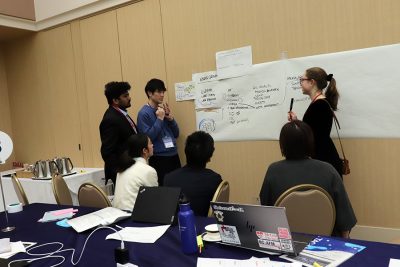
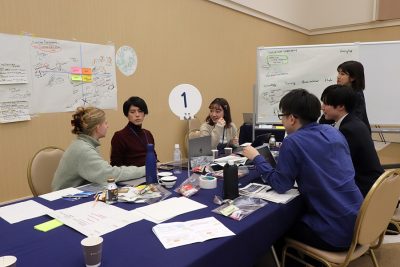
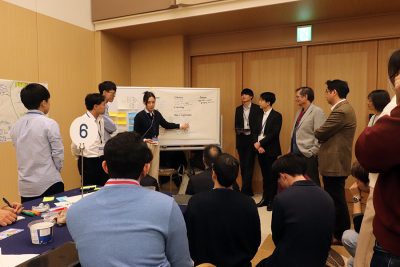
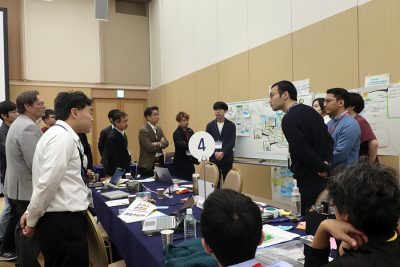
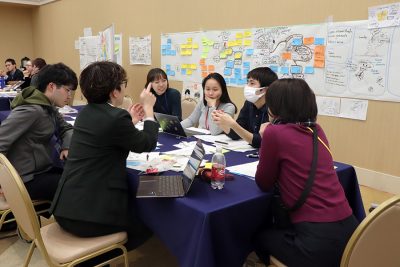
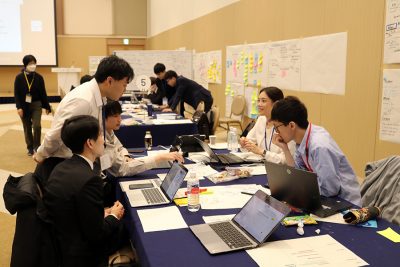
Final presentations and awards
During the final presentation in the afternoon of the second day, each group proposed and presented future technologies, services, or mechanisms to realize a better future society that achieves both efficiency and sufficiency. These presentations were held in hybrid format for both in-person and online participants. Approximately 90 participants, including TAC-MI program staff members, industrial collaborators, overseas advisors, and 2nd-year doctoral and master’s students of TAC-MI joined the session to listen to the final talks. Each 7-minute presentation was followed by a 7-minute Q&A session.
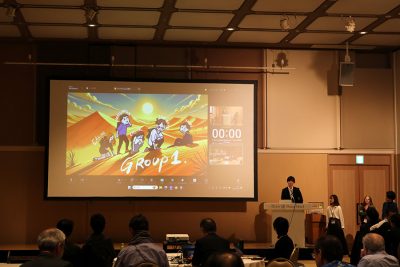
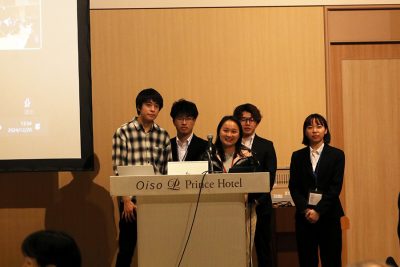
Awards ceremony
After the presentations by each team, six judges determined the winners of three kinds of awards while considering votes cast by non-student participants. At the awards ceremony, TAC-MI Director Takeo Yamaguchi presented the Originality Award, Moonshot Award, and Social Impact Award to the following groups and offered his comments on their presentation.
| Originality Award | Group5 「Energy Recovery in ISS」 |
| Moonshot Award | Group4 「NEW ATLANTIS」 |
| Social Impact Award | Group1 「Uchi-Cool – a new solution for desert-living」 |
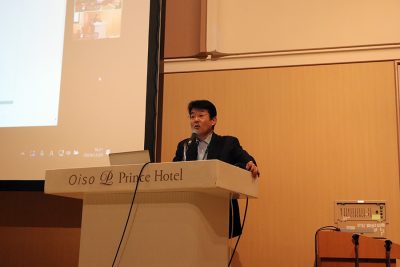
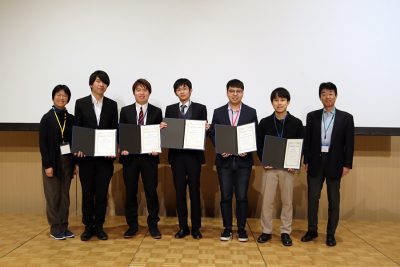
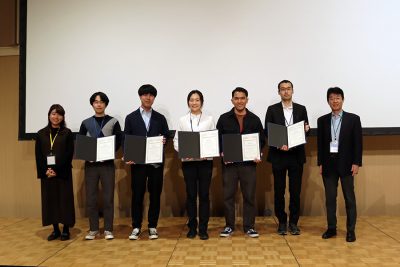
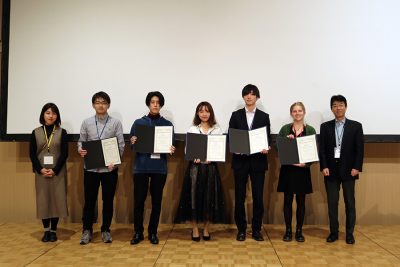
In the workshop, the graphic facilitator immediately summarized the idea concept into an illustration, which made the image more concrete, expanded the idea, and made the group work more fulfilling.
Together with the TAC-MI International Forum, this workshop provided an outstanding opportunity for participants to discuss their own research and workshop topics and to deepen exchanges with overseas researchers, faculty members, and TAC-MI students.
